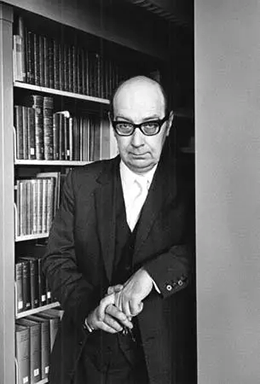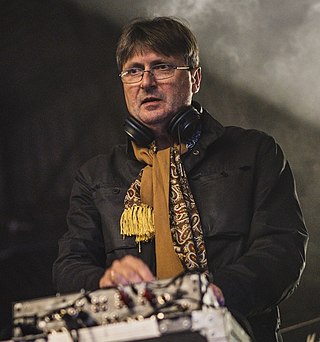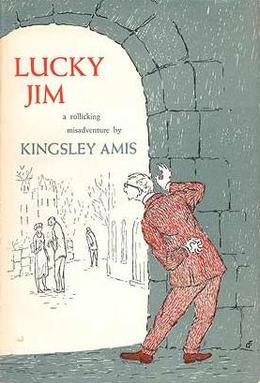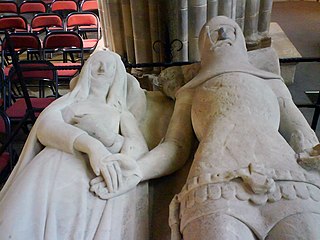
Sylvia Plath was an American poet, novelist, and short story writer. She is credited with advancing the genre of confessional poetry and is best known for two of her published collections, The Colossus and Other Poems (1960) and Ariel (1965), and also The Bell Jar, a semi-autobiographical novel published shortly before her suicide in 1963. The Collected Poems was published in 1981, which included previously unpublished works. For this collection Plath was awarded a Pulitzer Prize in Poetry in 1982, making her the fourth to receive this honour posthumously.

Edward James Hughes was an English poet, translator, and children's writer. Critics frequently rank him as one of the best poets of his generation and one of the twentieth century's greatest writers. He was appointed Poet Laureate in 1984 and held the office until his death. In 2008 The Times ranked Hughes fourth on its list of "The 50 greatest British writers since 1945".

Philip Arthur Larkin was an English poet, novelist, and librarian. His first book of poetry, The North Ship, was published in 1945, followed by two novels, Jill (1946) and A Girl in Winter (1947), and he came to prominence in 1955 with the publication of his second collection of poems, The Less Deceived, followed by The Whitsun Weddings (1964) and High Windows (1974). He contributed to The Daily Telegraph as its jazz critic from 1961 to 1971, with his articles gathered in All What Jazz: A Record Diary 1961–71 (1985), and edited The Oxford Book of Twentieth Century English Verse (1973). His many honours include the Queen's Gold Medal for Poetry. He was offered, but declined, the position of Poet Laureate in 1984, following the death of Sir John Betjeman.
Barbara Mary Crampton Pym was an English novelist. In the 1950s she published a series of social comedies, of which the best known are Excellent Women (1952) and A Glass of Blessings (1958). In 1977 her career was revived when the critic Lord David Cecil and the poet Philip Larkin both nominated her as the most underrated writer of the century. Her novel Quartet in Autumn (1977) was nominated for the Booker Prize that year, and she was elected as a Fellow of the Royal Society of Literature.

Phyllis Dorothy James, Baroness James of Holland Park,, known professionally as P. D. James, was an English novelist and life peer. Her rise to fame came with her series of detective novels featuring the police commander and poet, Adam Dalgliesh.

Dame Carol Ann Duffy is a Scottish poet and playwright. She is a professor of contemporary poetry at Manchester Metropolitan University, and was appointed Poet Laureate in May 2009, and her term expired in 2019. She was the first female poet, the first Scottish-born poet and the first openly lesbian poet to hold the Poet Laureate position.

Simon Robert Armitage is an English poet, playwright, musician and novelist. He was appointed Poet Laureate on 10 May 2019. He is professor of poetry at the University of Leeds.

Sir Andrew Motion is an English poet, novelist, and biographer, who was Poet Laureate from 1999 to 2009. During the period of his laureateship, Motion founded the Poetry Archive, an online resource of poems and audio recordings of poets reading their own work. In 2012, he became President of the Campaign to Protect Rural England, taking over from Bill Bryson.

Lucky Jim is a novel by Kingsley Amis, first published in 1954 by Victor Gollancz. It was Amis's first novel and won the 1955 Somerset Maugham Award for fiction. The novel follows the academic and romantic tribulations of the eponymous James (Jim) Dixon, a reluctant history lecturer at an unnamed provincial English university.

Brunette Coleman was a pseudonym used by the poet and writer Philip Larkin. In 1943, towards the end of his time as an undergraduate at St John's College, Oxford, he wrote several works of fiction, verse and critical commentary under that name, including homoerotic stories that parody the style of popular writers of contemporary girls' school fiction.
Vernon Phillips Watkins was a Welsh poet and translator. He was a close friend of fellow poet Dylan Thomas, who described him as "the most profound and greatly accomplished Welshman writing poems in English".

"Adam lay ybounden", originally titled Adam lay i-bowndyn, is a 15th-century English Christian text of unknown authorship. It relates the Biblical events of Genesis, Chapter 3 on the Fall of Man.

Jill is a novel by English writer Philip Larkin, first published in 1946 by The Fortune Press, and reprinted by Faber and Faber (London) in 1964. It was written between 1943 and 1944, when Larkin was twenty-one years old and an undergraduate at St John's College, Oxford.

Stephanie Jane Merritt is an English literary critic and writer who has contributed to publications including The Times, The Daily Telegraph, the New Statesman, New Humanist and Die Welt. She was Deputy Literary Editor of The Observer from 1998 to 2005 and currently writes for The Observer and The Guardian, in addition to writing novels — under her own name as well as the pseudonym S. J. Parris.

"An Arundel Tomb" is a poem by Philip Larkin, written and published in 1956, and subsequently included in his 1964 collection The Whitsun Weddings. It describes the poet's response to seeing a pair of recumbent medieval tomb effigies with their hands joined in Chichester Cathedral. It is described by James Booth as "one of [Larkin's] greatest poems". It comprises 7 verses of 6 lines each, each with rhyme scheme ABBCAC.

The North Ship is the debut collection of poems by Philip Larkin (1922–1985), published in 1945 by Reginald A. Caton's Fortune Press. Caton did not pay his writers and expected them to buy a certain number of copies themselves. A similar arrangement had been used in 1934 by Dylan Thomas for his first collection.
Throughout the life of the poet Philip Larkin, multiple women had important roles which were significant influences on his poetry. Since Larkin's death in 1985, biographers have highlighted the importance of female relationships on Larkin: when Andrew Motion's biography was serialised in The Independent in 1993, the second installment of extracts was dedicated to the topic. In 1999, Ben Brown's play Larkin with Women dramatised Larkin's relationships with three of his lovers, and more recently writers such as Martin Amis, continued to comment on this subject.

Eimear McBride is an Irish novelist, whose debut novel, A Girl Is a Half-formed Thing, won the inaugural Goldsmiths Prize in 2013 and the 2014 Baileys Women's Prize for Fiction.

Career of Evil is a 2015 crime fiction novel written by J. K. Rowling, and published under the pseudonym Robert Galbraith. It is the third novel in the Cormoran Strike series of detective novels and is followed by Lethal White in 2018 and Troubled Blood in 2020.
Katherine Rundell is an English author and academic. She is the author of Rooftoppers, which in 2015 won both the overall Waterstones Children's Book Prize and the Blue Peter Book Award for Best Story, and was short-listed for the Carnegie Medal. She is a Fellow of All Souls College, Oxford and has appeared as an expert guest on BBC Radio 4 programmes including Start the Week, Poetry Please, Seriously.... and Private Passions.















